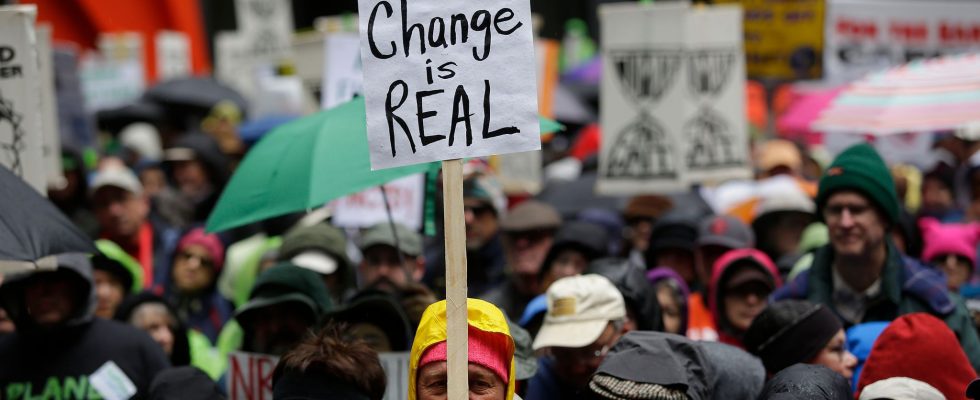How far away it seems, the time when climate skeptics were content to deny the reality of climate change caused by man. Because, if we are to believe the most environmentally committed, like the journalist at World Stéphane Foucart, who recently appeared on the show C this evening, “the latest avatar of climate skepticism is to say that we will get by with technology”. Being a climate skeptic therefore no longer means denying warming, it is wanting to combat it in a way deemed inadequate by the proponents of the only ecology which, according to them, is valid. Moreover, as Foucart writes in one of his last columns, we should extend the definition of climate skepticism “to what it should be – that is to say also taking into account the perception of the scale of the foreseeable damage from warming and the extent of the socio-economic transformations to be accomplished to mitigate them. To put it trivially, if you don’t panic, you are climate skeptic. And if you do not join the champions of degrowth on the means to be used to respond to climate change, you are denying not the means but the end itself, and you are, here again, climate skeptic.
>> Subscribe to Expression, the newsletter of ideas from L’Express by clicking here.
Expanding, through a circular and therefore fallacious definition, the content of a concept, is not a rational approach but a moral and moralizing process. It allows us to exclude those with whom we disagree by replacing argumentation with stigmatization. The left has used this same resource in the case of immigration and integration, referring criticism to xenophobia or racism, and therefore morally disqualifying their authors. The result is a collective inability to find a satisfactory consensus on this complex subject.
Likewise, the response to climate change can only suffer from the use of anathema. No one today knows precisely whether technological ingenuity will be sufficient, necessary or useless to deal with global warming and its consequences. We only have hypotheses based on our knowledge of the history of technical progress, current technologies and possible research perspectives. To those who claim that technology can solve everything because it always has, we must respond that the past does not predict the future. But to those who believe that it is of no use, we must retort that the future is not written. Technology is just one tool among others. This is why those who revere it and those who decry it make a symmetrical error, either giving it so much space that it becomes an end in itself, or directing it with so much hatred that ecology seems nothing more than a pretext. .
In reality, all possible strategies – in addition to technical progress, the carbon market, the carbon tax, local, national and international regulations, individual commitment, local projects, and finally the necessary reflection on our responsibility to with regard to an Earth which does not belong to us, but which has been bequeathed to us, of which we are responsible and which we must pass on to the following generations – are not mutually exclusive, they complement each other, as long as we give ourselves worth making them compatible. Refusing this pragmatism is actually preventing ourselves from protecting the Earth.
The real climate skeptics have chosen to flee
Perhaps this moral ecology thinks that the environmental challenge is well worth the use of anathema, and that exaggeration will be more convincing. This is a poor understanding of the mechanisms of public opinion, which does not necessarily react in the desired direction to injunctions. The widespread accusations of climate skepticism could even contribute to creating the enemy they claim to fight. The more we accuse ordinary people of being “badly” committed to the ecological cause, the more they will turn away from it, before, by reversing the stigma, going so far as to boast about it.
In the same perspective, the term climate “emergency” certainly plays a role contrary to what it aims to do. Since the catastrophe has not yet occurred even though it has been said to be imminent, the word loses its anxiety-inducing force. And the more we use it in the wrong way, the more its meaning continues to erode. As a result, at the very moment when environmental awareness and action are more than necessary, we take the risk of anesthetizing them.
Danger usually provokes three reactions in men: flight, astonishment or fight. The real climate skeptics have chosen to flee. Astonishment is the lot of an anxious ecology which takes refuge, in reaction, in utopia. There remains the fight which indeed requires skepticism… towards all those who believe themselves to be the holders of the truth.
